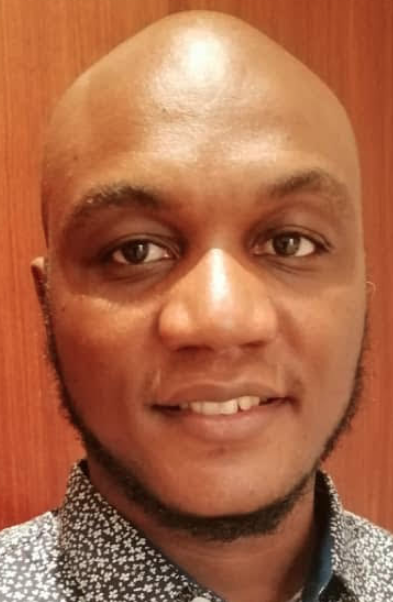When most of us were busy looking for our urgent N2,000, we saw a news report that United States President Donald Trump was threatening that if Nigeria did not stop the killing of Christians, the US would be forced to intervene.
Expectedly, the social media space went into overdrive. Emergency foreign policy experts surfaced online. Even those who couldn’t pronounce the word “foreign” properly became instant experts on international relations and geopolitics.
And trust our Gen Zs, who mostly don’t have a clue when it comes to politics and foreign policy – they jumped on the bandwagon. They began to lionise war, and some were eagerly looking forward to it. The threat of war became “cruise,” as we say in street lingo.
My reaction to this disturbing enthusiasm for foreign intervention? This is where ignorance meets foolishness, and the result is dangerous fantasy.
Advertisement
Some of these people don’t like the government and see Trump’s threat as an opportunity to get back at the Tinubu administration. But people sometimes forget there is a difference between a government in power and the country. When foreign powers intervene militarily, it’s not just the government that suffers – it’s the entire nation and its people.
That was how some of them were calling for a military coup after the last elections. They wanted soldiers to take over because they were angry about the election results. Now they’re cheering for foreign military intervention. The pattern is clear – they’re willing to destroy Nigeria just to spite the government they don’t like.
Let me be clear about something: anything that can stop the killings in Nigeria is theoretically welcome. The north has become a killing field, no thanks to terrorists, bandits, and killer herdsmen. They rape, loot, and kill with reckless abandon. Anything to stop this madness should be considered. It’s just that some of us are deeply suspicious of this sudden interest in our internal affairs.
Advertisement
Why the sudden interest now? The timing is suspicious, and while Trump may have good intentions, we must be careful about the implications of foreign military intervention.
But let’s address the elephant in the room – the Gen Zs and other Nigerians celebrating the prospect of foreign military intervention. Do they know what foreign military intervention looks like?
Let me paint a picture for these war enthusiasts. Foreign intervention typically results in cities being bombed to rubble, infrastructure being destroyed, thousands of civilian casualties euphemistically called “collateral damage,” economic collapse, years or possibly decades of instability, loss of sovereignty, and your country becoming a playground for competing foreign powers.
Iraq had Saddam Hussein, a brutal dictator. International forces intervened to bring democracy and stop the alleged weapons of mass destruction. Twenty years later, Iraq is still struggling with instability, sectarian violence, and destroyed infrastructure. Millions of Iraqis have died or been displaced. Is that what these Gen Zs want for Nigeria?
Advertisement
Libya had Muammar Gaddafi. International forces intervened to protect civilians during the Arab Spring. Today, Libya is a failed state with multiple governments, widespread instability, and endless civil war. Many Libyans who survived the intervention now long for the stability they once had. Is that the future these keyboard warriors are cheering for?
Syria’s situation shows what happens when multiple foreign powers get involved in a country’s internal conflicts. The result has been over half a million dead, millions of refugees, cities reduced to rubble, and a humanitarian catastrophe of epic proportions. Was the intervention worth it?
The Gen Zs celebrating Trump’s threats clearly don’t understand that when superpowers get involved in other countries’ conflicts, the outcomes are often more complicated than anyone anticipates. Well-intentioned interventions can create unintended consequences that last for generations.
Some Nigerians are scared to speak candidly about these issues because they fear visa bans or other consequences. This fear is understandable but unfortunate. We should be able to have honest conversations about sovereignty and security without worrying about retribution.
Advertisement
Life in some places in the northwest and north-central has indeed become like the Hobbesian state of nature, where life has become “solitary, poor, nasty, brutish, and short” because of terrorists. This is a fact that cannot be denied. Our security situation is a national emergency that requires urgent action.
But the solution is not foreign military intervention – it’s competent domestic governance. We need the federal government to step up and end these killings. Recently, President Bola Tinubu told the service chiefs, “We are in a hurry to celebrate peace.” I believe all well-meaning Nigerians share this sentiment.
Advertisement
The question is whether the government is willing to take the hard decisions necessary to achieve peace. Are they ready to properly fund and equip the military? Are they willing to address the underlying issues of poverty, unemployment, and governance failure that fuel insurgency? Are they prepared to confront powerful interests that benefit from insecurity?
Trump’s statement should be a wake-up call for the Nigerian government, not because we fear intervention, but because our failure to protect our citizens has drawn international attention and concern. When you can’t secure your territory, others will express willingness to help – and that help always comes with strings attached.
Advertisement
Instead of celebrating Trump’s threats, Gen Zs should be demanding better governance from Nigerian leaders. They should be demanding security reforms, better-equipped security forces, and accountability for security failures. They should be pushing for Nigerian solutions, not foreign occupation.
The irony is thick – the same Gen Zs who celebrated EndSARS and demanded police reform are now cheering for potential foreign military involvement. Do they think foreign forces operate with more restraint than Nigerian security agencies? History suggests otherwise in most cases.
Advertisement
What Nigeria needs is not external intervention but internal transformation. We need a complete overhaul of our security architecture, better intelligence gathering and coordination between security agencies, proper equipment and training for security forces, and we must address the root causes of insurgency like poverty, unemployment, and marginalisation.
We need strong political will to confront insecurity head-on and accountability for security chiefs who fail to deliver results.
We also need citizens who understand that sovereignty matters. A country that cannot defend itself eventually loses its independence. If we allow foreign powers to intervene militarily, we risk becoming dependent rather than remaining a sovereign nation.
The government must take international concern about our security situation seriously, not because we fear intervention, but because it exposes our failure to protect Nigerian lives. The best response is not diplomatic protests but concrete action to end the killings and restore security across the country.
To the Gen Zs cheering for external involvement, I have simple advice: Be careful what you wish for. You might think foreign intervention sounds exciting from behind your smartphone screens, but when the reality hits, it’s rarely what people imagined. Ask people in countries that have experienced such interventions if they’re satisfied with the outcomes.
War is not “cruise.” War is death, destruction, displacement, and decades of suffering. Anyone celebrating the prospect of military conflict in Nigeria is either ignorant of history, foolish about consequences, or both.
Nigeria has problems – serious, urgent problems that need immediate attention. But we must solve them ourselves. External military intervention, however well-intentioned, often creates more problems than it solves while compromising national sovereignty and dignity.
The government must act now to end the killings, not because of external pressure, but because Nigerian lives matter and deserve protection. Our security forces must be empowered to do their jobs effectively. Our leaders must show the political will to make tough decisions. And our Gen Zs must understand that patriotism sometimes means demanding better from your government without inviting external forces that could compromise your country’s future.
Views expressed by contributors are strictly personal and not of TheCable.


